Filter by
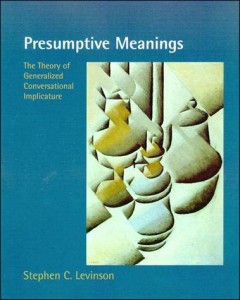
Presumptive meanings :the theory of generalized conversational implicature
This is the first extended discussion of preferred interpretation in language understanding, integrating much of the best research in linguistic pragmatics from the last two decades. When we speak, we mean more than we say. In this book Stephen C. Levinson explains some general processes that underlie presumptions in communication. This is the first extended discussion of preferred interpret…
- Edition
- -
- ISBN/ISSN
- 9780262278256
- Collation
- 1 online resource (xxiii, 480 pages).
- Series Title
- -
- Call Number
- -
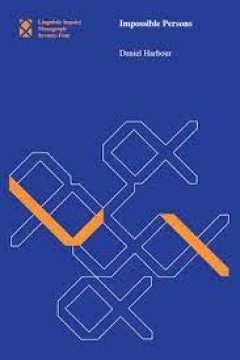
Impossible persons
A groundbreaking, comprehensive formal theory of grammatical person that recasts its empirical foundations and re-envisions its theoretical core."Impossible persons, Daniel Harbour's comprehensive and groundbreaking formal theory of grammatical person, upends understanding of a universal and ubiquitous grammatical category. Breaking with much past work, Harbour establishes three core theses, on…
- Edition
- -
- ISBN/ISSN
- 9780262336048
- Collation
- 1 online resource (xviii, 312 pages) :illustrations.
- Series Title
- -
- Call Number
- -

What Counts: Focus and Quantification
In What Counts, Elena Herburger considers the effects of focus on interpretation. She investigates how focus affects the pragmatics and truth conditions of a sentence by rearranging its quantificational structure.Adopting a neo-Davidsonian stance, Herburger claims that various pragmatic and truth-conditional effects of focus sustain a uniform explanation if focus is viewed as imposing structure…
- Edition
- -
- ISBN/ISSN
- 9780262275293
- Collation
- 1 online resource (x, 166 pages).
- Series Title
- -
- Call Number
- -
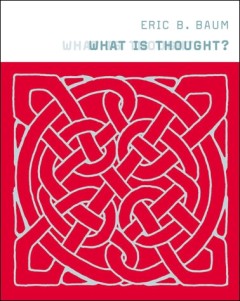
What Is Thought?
Bradford Books.In What Is Thought? Eric Baum proposes a computational explanation of thought. Just as Erwin Schrodinger in his classic 1944 work What Is Life? argued ten years before the discovery of DNA that life must be explainable at a fundamental level by physics and chemistry, Baum contends that the present-day inability of computer science to explain thought and meaning is no reason to do…
- Edition
- -
- ISBN/ISSN
- 9780262310574
- Collation
- 1 online resource (495 pages)
- Series Title
- -
- Call Number
- -
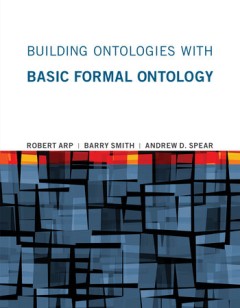
Building Ontologies with Basic Formal Ontology
Providing an introduction to the field of applied ontology that is of particular relevance to biomedicine, this thorough book covers theoretical components of ontologies, best practices for ontology design, and examples of biomedical ontologies in use. --OCLC-licensed vendor bibliographic record.
- Edition
- -
- ISBN/ISSN
- 0262329581
- Collation
- 1 online resource
- Series Title
- -
- Call Number
- -
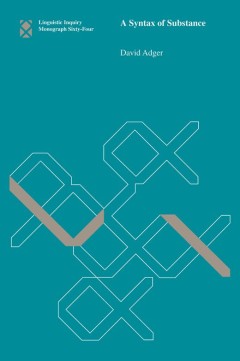
A syntax of substance
Adger proposes a new approach to phrase structure that eschews functional heads and labels structures exocentrically. The proposal simultaneously simplifies the syntactic system and restricts the range of possible structures, ruling out the ubiquitous (remnant) roll-up derivations and forcing a separation of arguments from their apparent heads. This new system has a number of empirical conseque…
- Edition
- -
- ISBN/ISSN
- 9780262312233
- Collation
- 1 online resource.
- Series Title
- -
- Call Number
- -
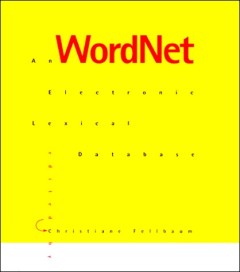
WordNet :an electronic lexical database
"Contributors : Reem Al-Halimi, Robert C. Berwick, J.F.M. Burg, Martin Chodorow, Christiane Fellbaum, Joachim Grabowski, Sanda Harabagiu, Marti A. Hearst, Graeme Hirst, Douglas A. Jones, Rick Kazman, Karen T. Kohl, Shari Landes, Claudia Leacock, George A. Miller, Katherine J. Miller, Dan Moldovan, Naoyuki Nomura, Uta Priss, Philip Resnik, David St-Onge, Randee Tengi, Reind P. van de Riet, Ellen…
- Edition
- -
- ISBN/ISSN
- 9780262272551
- Collation
- 1 online resource (xxii, 423 pages).
- Series Title
- -
- Call Number
- -
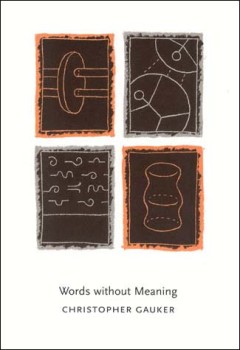
Words without Meaning
- Edition
- -
- ISBN/ISSN
- 9780262273596
- Collation
- -
- Series Title
- -
- Call Number
- -
- Edition
- -
- ISBN/ISSN
- 9780262273596
- Collation
- -
- Series Title
- -
- Call Number
- -
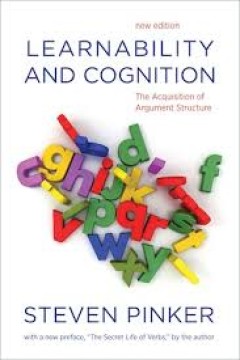
Learnability and cognition : the acquisition of argument structure
Before Steven Pinker wrote bestsellers on language and human nature, he wrote several technical monographs on language acquisition that have become classics in cognitive science. Learnability and Cognition, first published in 1989, brought together two big topics: how do children learn their mother tongue, and how does the mind represent basic categories of meaning such as space, time, causalit…
- Edition
- New ed.
- ISBN/ISSN
- 9780262314275
- Collation
- 1 online resource (xx, 488 pages) :illustrations.
- Series Title
- -
- Call Number
- -

Consequences of language :from primary to enhanced intersubjectivity
"Two senior scholars explain what language does to human beings, especially how it affects our intersubjective competence"--OCLC-licensed vendor bibliographic record.
- Edition
- -
- ISBN/ISSN
- 9780262372749
- Collation
- 1 online resource
- Series Title
- -
- Call Number
- -
 Computer Science, Information & General Works
Computer Science, Information & General Works  Philosophy & Psychology
Philosophy & Psychology  Religion
Religion  Social Sciences
Social Sciences  Language
Language  Pure Science
Pure Science  Applied Sciences
Applied Sciences  Art & Recreation
Art & Recreation  Literature
Literature  History & Geography
History & Geography